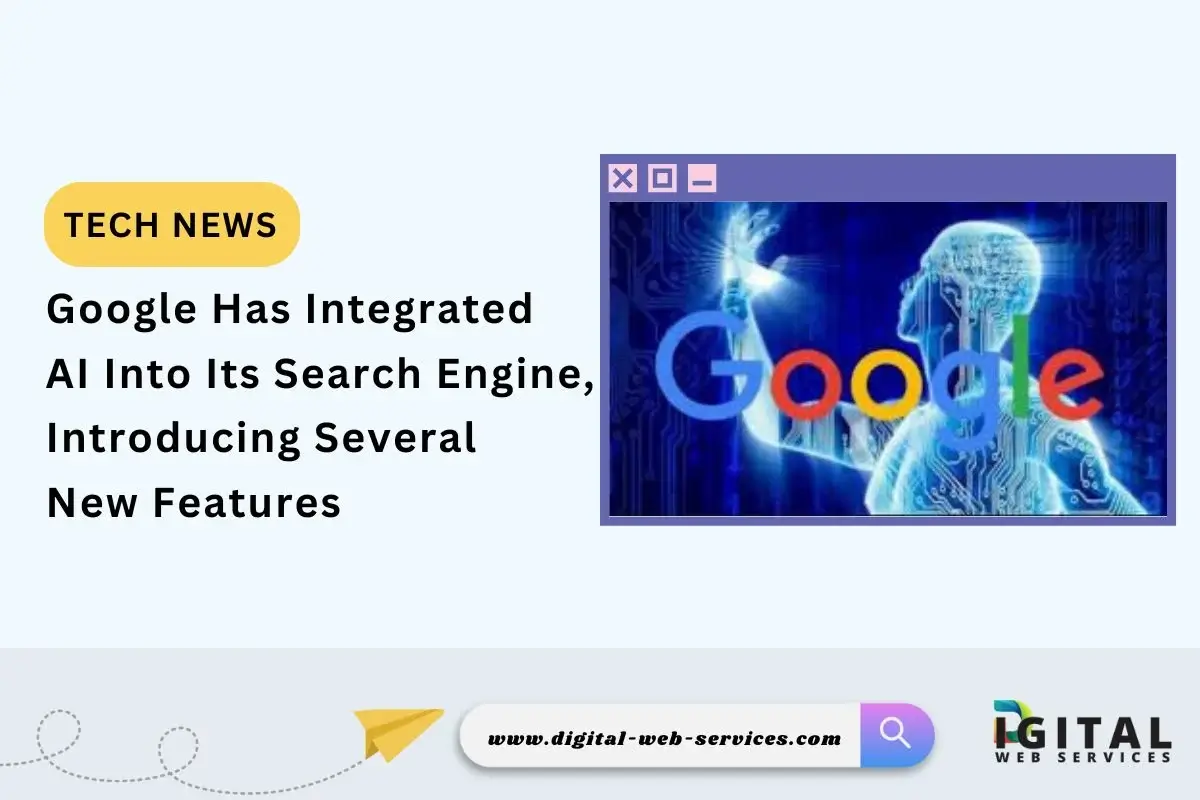
Google AI integrated search engines are search engines that leverage artificial intelligence (AI) technology to enhance their search capabilities. These search engines use AI algorithms to process and understand user queries more effectively, resulting in more relevant and accurate search results.
Google has already integrated AI into its search engine, and it’s available for users now. If you’re using Google Search, you’re likely already benefiting from AI-powered features without even realizing it.
Features of Google AI Integrated Search Engines:
Here are some key features and benefits of Google AI integrated search engines:
- Natural language processing: AI allows the search engine to understand and interpret user queries more naturally, even if they are phrased in a conversational style or contain complex language.
- Semantic understanding: AI can understand the underlying meaning and context of search queries, leading to more precise and relevant results.
- Machine learning: AI algorithms can learn from user behavior and preferences to improve search results over time.
- Image and video search: AI can analyze pictures and videos to identify relevant content based on their visual content.
- Voice search: AI enables users to search using their voice, making it easier to find information on the go.
Benefits of Google AI Integrated Search Engines:
- Improved search accuracy: AI-powered search engines can deliver more relevant and accurate search results, saving users time and effort.
- Enhanced user experience: AI can provide a more intuitive and personalized search experience, making it easier to find the information you need.
- Access to more information: AI can help users discover new and relevant information that they may not have found otherwise.
- Faster search results: AI can process information faster, leading to faster search results.
Overall, Google AI integrated search engines represent a significant advancement in search technology, offering users a more powerful and effective way to find information online.
How to Use Google AI Integrated Search Engine?
Using Google AI Integrated Search is straightforward. Simply open Google Search in your web browser or use the Google app on your device. When you enter a search query, the AI algorithms will work behind the scenes to provide you with the most relevant results.
Here are some tips for getting the most out of Google AI Integrated Search:
- Be specific: The more specific your search query, the more accurate the results will be. For example, instead of searching “restaurants,” try searching “Italian restaurants near me.”
- Use natural language: Feel free to use conversational language in your search queries. Google AI can understand and interpret your intent even if you don’t use perfect grammar or syntax.
- Experiment with different keywords: If you’re not getting the results you want, try using different keywords or phrases.
- Use images: You can search for images by uploading them directly to Google Search or by pasting an image URL.
- Use voice search: If your device supports it, you can use your voice to search for information.
By following these tips, you can take full advantage of Google AI Integrated Search and find the information you need quickly and easily.
How to Optimize The Website For Google AI Integrated Search?
Google AI integrated search engines are designed to understand and deliver more relevant search results. To optimize your website for these advanced search engines, consider the following strategies:
1. High-Quality Content:
- Relevance: Ensure your content directly addresses the search intent of your target audience.
- Depth: Provide comprehensive and in-depth information on your topic.
- Originality: Create unique and original content that offers value to your visitors.
2. Semantic Optimization:
- Keywords: Use relevant keywords and phrases throughout your content, including headings, subheadings, and body text.
- Synonyms: Incorporate synonyms and related terms to broaden your reach.
- Context: Consider the context of your content and how it relates to other topics.
3. Structured Data:
- Schema Markup: Use schema markup to provide search engines with additional information about your content, such as product details, event information, or article authorship.
- Rich Snippets: Enhance your search results with rich snippets that display information like star ratings, images, or prices.
4. User Experience:
- Mobile-Friendliness: Ensure your website is optimized for mobile devices to provide a seamless user experience.
- Page Speed: Improve your website’s loading speed to keep visitors engaged.
- Navigation: Create a clear and intuitive navigation structure to help users find what they’re looking for.
5. AI-Focused Optimization:
- Natural Language: Use natural language in your content to make it easier for AI algorithms to understand.
- Entity Recognition: Identify and label entities within your content (e.g., people, places, things) to improve search engine understanding.
- Question and Answer Format: Consider creating content in a question-and-answer format to address common queries.
6. Technical SEO:
- Indexing: Ensure your website is properly indexed by search engines.
- Crawlability: Make your website easy for search engine crawlers to navigate.
- Mobile-First Indexing: Optimize your website for mobile-first indexing to prioritize mobile-friendly content.
Remember: Google’s AI algorithms are constantly evolving, so it’s important to stay updated on the latest best practices and trends in search engine optimization. By focusing on these factors, you can improve your website’s visibility and attract more organic traffic from Google AI-integrated search engines.
You can follow us on Google News for more interesting latest news and updates
Digital Web Services (DWS) is a leading IT company specializing in Software Development, Web Application Development, Website Designing, and Digital Marketing. Here are providing all kinds of services and solutions for the digital transformation of any business and website.










